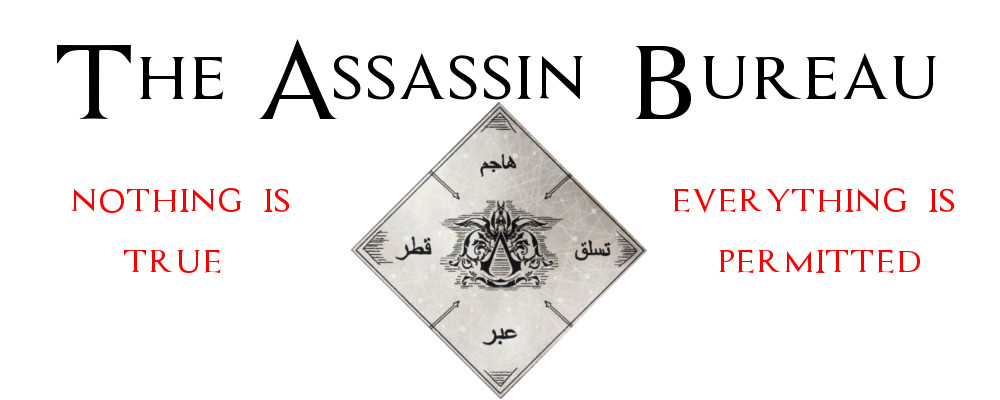Assassin’s creed
was born because of a man’s defiance against Ubisoft. Patrice
Desilets, fresh from his success in leading his production team in
creating A prince of Persia: sands of time, was told by
Ubisoft to make a sequel. Ubisoft were no doubt hoping to create a
franchise out of this IP. But Desilets was a visionary, not a cynic.
He wanted to create a game about a more active protagonist. So,
rather then a game about a Prince, Desilets began working on the
prototype for Assassin’s creed. It was to be called prince of
Persia: Assassins and focused on the Nizari Ismaili and their unique
creed.
Ubisoft were
reluctant: they believed a game about assassins would be
unsuccessful. But after two years of promoting, Desilets finally got
to work on his project. Assassin’s creed was born.
Assassin’s creed
focussed on the concept of natural gameplay. It did not make a
distinction between game and story, instead all was integrated. It
was for this reason, the animus was created, for this reason one
could walk about in the loading screen, for this reason there were no
cut-scenes and for this reason, most importantly, the world consisted
of visibly climbable buildings and realistic climbing mechanics.
The game was
focussed on the Assassins and the Templars. Two groups representing
two sides of human history. The Templars are a physical face to the
long standing trend throughout human history: that of powerful men
controlling the masses using ideas. Robert de Sable and his
brotherhood believed that mankind could never see beyond its petty
illusions and so it was better to create a false reality that unified
mankind in peace rather then see them tear eachother apart in
conflict for the sake of defending their illusions. Altair and his
brotherhood believe that mankind can overcome these illusions and
recognise “nothing is true and everything is permitted” and so
work towards eliminating those who would abuse mankind through
creating false realities, holding back mankind’s progress towards
enlightenment. All of this hinged on the piece of eden: a device used
to create illusions in the minds of men. It represented mankind’s
sin as they try to control the minds of others and enforce their
vision onto unwilling subjects. It is a complex philosophical debate
that was explored through Altair’s slow development to arrogant
fool to enlightened Assassin.
Assassin’s creed
was a global success. It’s intriguing stealth mechanics, close
quarter assassinations and free-running mechanic left a mark on the
game industry and a lucrative one at that. Desilets was not finished
with Desmond Mile’s story, though Altair’s had ended. He was
given the chance to make a sequel and in this game showed the full
potential of his team’s creative ability.
Ezio Auditore da
Firenze, his name is a legend in video games. This legend was forged
in Assassin’s creed II. The game focussed on Desmond Mile’s
attempt to learn how to become a master Assassin through the bleeding
effect and hopefully save the Assassins from destruction under the
overwhelmingly powerful Templar brotherhood and their arm: Abstergo.
Ezio would be the vehicle for this training: a young, renaissance
bourgeois turned Assassin after the Templars sought to kill him and
his family. Ezio’s journey from boy to man, from spoilt bourgeois
to transcendent Assassin; was meant to mirror the player’s
progression. His team had already built the engine, and now Desilets
wanted to tell the story of the human condition through history.
Desmond Miles was the present and Ezio Auditore the past; one of the
ancestors that made Desmond who he was. I suppose I could go deeper
into this, but this is the story of Assassin’s creeds creation, and
there is much to tell.
In the end. Despite
being wildly successful, it would be Desilets’ innovation that
would spell the series downfall. Desilets was not interested in
making the series as long as possible, he tolerated the constant spin
offs that Ubisoft churned out. It was his intention to create a fine
narrative and a game series to show beauty to the player: the “beauty
of contemplation” he put it. But Ubisoft did not care about beauty.
They wanted money.
And so Brotherhood
was made. Ezio’s journey had already ended. But it seemed Ubisoft
cared little for such details. Desilets worked on the game for only
the first year, writing some of the story. But it is likely most of
this was ignored, but we may never know. Desilets was tight lipped
about his leaving Ubisoft. He gave multiple reasons: a desire to be
with his family, a weariness of lies. Most recently he has come out
saying he was uncomfortable making money for people who did not care
for him or his team.
Whatever it was,
Ubisoft did not appreciate his leaving. His new employer, THQ, was
bought by Ubisoft and Desilets was literally forced out of his office
and fired on the spot. Desilets was forced to battle with Ubisoft for
years over project Amsterdam 1666, a game that was to be quite like
Assassin’s creed. In the end, Desilets; disillusioned with big
publishers, founded Panache digital: an indie company dedicated
towards creating AAA standard games while preserving artistic vision.
Most of the original Assassin’s creed team are now in this company.
All the while,
strangers took Assassin’s creed and, under Ubisoft’s whims,
fashioned it into a machine of greed.

No comments:
Post a Comment